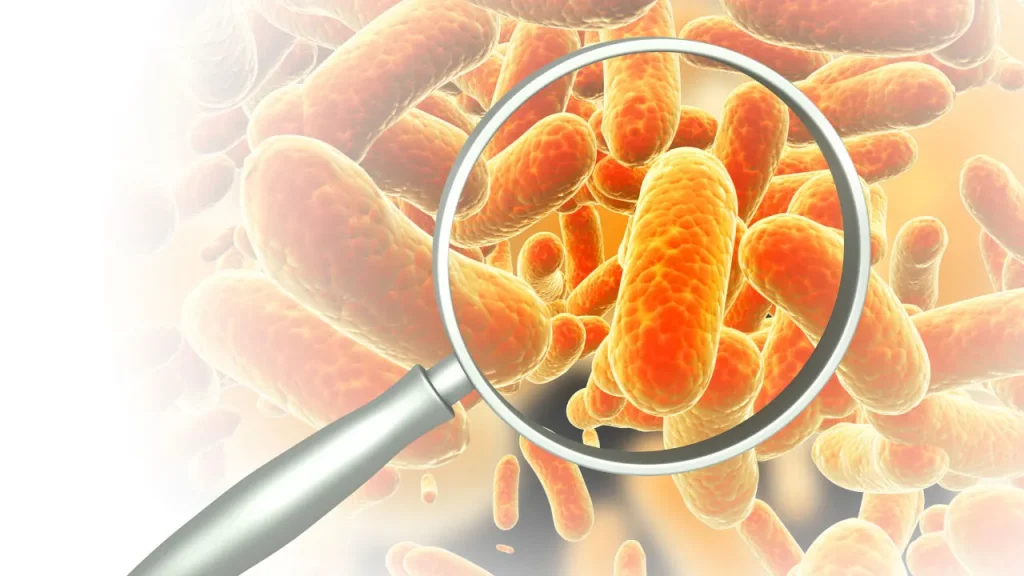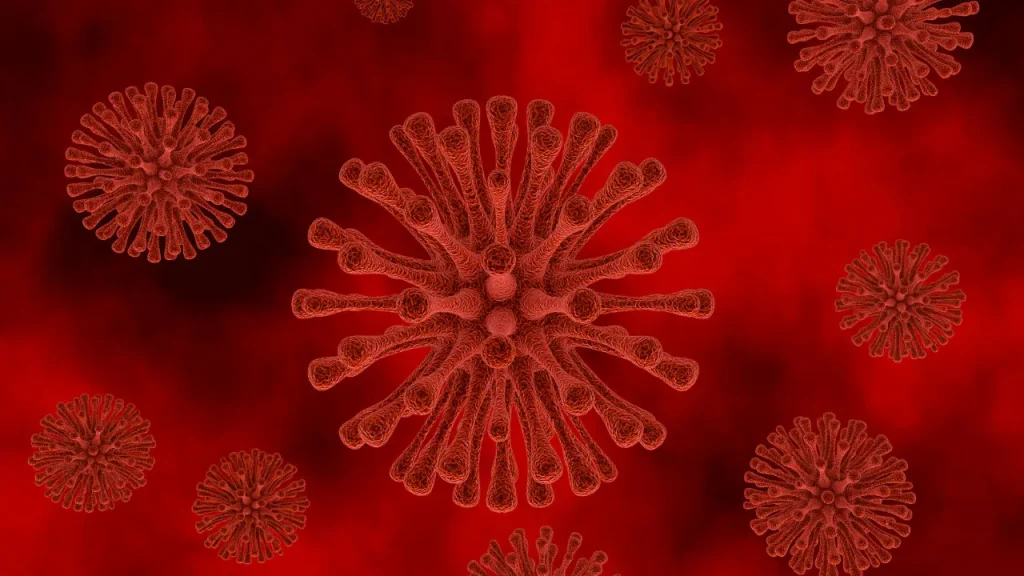Natural nutritional supplements with possible health advantages have gained traction in recent years. Bridelia, a dietary supplement made from the Bridelia ferruginea plant, is one such product. The goal of this page is to provide readers with a thorough knowledge of Bridelia, including its nature, health advantages, recommended dose, negative effects, possible drug interactions, and appropriate usage. We will elucidate the physiological processes by which Bridelia exerts its effects on the body and brain by a thorough analysis of its chemical make-up.
You May Also Like:
5 Great Nootropic Herbs for Energy, Focus, and Productivity
A Nootropic Herb for Cognitive Enhancement: Discover Bacopa Monnieri Benefits and Side Effects
BRIDELIA: Benefits, Dosage, Side Effects, Drug Interactions, and Other Important Information is an original (NootropicsPlanet) article.
Nature of Bridelia
The plant Bridelia ferruginea, which is indigenous to several parts of Africa, is the source of the name Bridelia. Traditional herbal medicine has long used this plant, especially for its possible medicinal benefits. Alkaloids, flavonoids, terpenes, tannins, and phenolic compounds are Bridelia’s active ingredients, and they all work together to produce the drug’s pharmacological effects.
Health Benefits of Bridelia
According to research, Bridelia has numerous health advantages. Its anti-inflammatory effects, which may help treat a variety of inflammatory disorders, such as arthritis and inflammatory bowel disease, are one of its main benefits.
Bridelia has also been shown to have antioxidant action, protecting cells from oxidative damage brought on by dangerous free radicals. This antioxidative capability may help avoid chronic illnesses including cardiovascular problems and certain forms of cancer.
Additionally, early research suggests that Bridelia could have antibacterial characteristics that prevent the development of some bacteria and fungi. It’s possible that this antibacterial action may help treat infections. Additionally, Bridelia has shown promise in maintaining liver function and displaying analgesic qualities, which may alleviate pain and enhance general wellbeing.

Chemistry of Bridelia
Alkaloids are one of the most prevalent classes of chemical substances in Bridelia. Alkaloids are nitrogen-containing chemical molecules that have a wide range of therapeutic effects. Alkaloids found in Bridelia include bridelins, bridelamine, and brideline. The antibacterial and anti-inflammatory properties of these alkaloids have been linked to Bridelia’s possible health advantages.
Flavonoids are a family of chemicals that are extensively found in plants and are recognized for their anti-inflammatory and antioxidant activities. Flavonoids including rutin, kaempferol, and quercetin are abundant in Bridelia. These flavonoids have strong antioxidant properties that aid in scavenging dangerous free radicals and shielding cells from oxidative damage. They also have anti-inflammatory qualities that control the body’s inflammatory processes.
Terpenes, which are hydrocarbon substances made from isoprene units, may also be found in Bridelia. Terpenes are widely present in essential oils and are recognized for a variety of biological actions. In addition to contributing to Bridelia”s fragrant qualities, several terpenes found in it may potentially have medicinal benefits. However, further investigation is required to clarify their precise functions and modes of operation in Bridelia.
Tannins are polyphenolic substances that are present in a wide variety of plant species, including Bridelia. These substances have a history of usage in herbal medicine and are renowned for their astringent qualities. By preventing certain bacteria and fungus from growing, tannins in Bridelia may support its putative antibacterial effect. They could also act as antioxidants, boosting Bridelia’s overall health advantages.
A varied class of commonly present secondary metabolites in plants are called phenolic compounds. Bridelia includes a number of phenolic substances, including flavonoids and phenolic acids. These substances are well-known for their anti-inflammatory and antioxidant properties. Phenolic acids, such gallic acid and caffeic acid, support Bridelia’s total antioxidant capacity, while flavonoids, as already established, have a variety of positive benefits on human health.
Alkaloids, flavonoids, terpenes, tannins, and phenolic chemicals all work together in Bridelia to create a complex chemical profile that may have health advantages. These substances assist Bridelia’s anti-inflammatory, antibacterial, and other pharmacological effects, as well as its antioxidant and other characteristics.
To completely comprehend the precise functions and interactions of these substances inside Bridelia and their effects on the human body, however, further research is required.
Knowing Bridelia’s chemical makeup is essential to understanding its possible therapeutic effects and modes of action. It is crucial to remember that the chemical makeup of Bridelia might change based on elements including the location of the plant’s origin, its growing environment, and the extraction process. For Bridelia-based products to retain consistent quality and composition, it is crucial to guarantee standardized production methods.
Physiological Mechanism of Action
The physiological process through which Bridelia affects the body and brain via which it acts is complex. The flavonoids and phenolic chemicals that make up Bridelia’s active ingredients are thought to be a part of what gives it its anti-inflammatory and antioxidant properties. These substances interact with a variety of molecular targets in the body, such as enzymes connected to oxidative stress and inflammatory processes.
Pro-inflammatory mediators including cytokines and prostaglandins are hypothesized to be inhibited by Bridelia, which is why it has anti-inflammatory effects. It has been shown that the flavonoids in Bridelia inhibit the activity of certain enzymes, including cyclooxygenase (COX) and lipoxygenase (LOX), which are crucial for the generation of inflammatory chemicals. Bridelia might reduce inflammation and its effects by altering these pathways.
The components of Bridelia have antioxidant action, and in particular, phenolic compounds have the ability to scavenge free radicals. Free radicals are very reactive chemicals that have the potential to harm cells and have a role in various illnesses. Bridelia helps shield cells from oxidative stress by scavenging these free radicals, therefore lowering the risk of cellular damage and subsequent disease development.
Alkaloids and tannins may also contribute to Bridelia’s antibacterial properties. These substances have shown inhibitory effects on several bacteria and fungus. Although the precise mechanisms behind this antimicrobial action are still not entirely known, it is thought that Bridelia interferes with vital cellular processes or damages the integrity of microbial cell membranes, inhibiting those activities.

Optimal Dosage of Bridelia
To guarantee safe and efficient usage of Bridelia, the ideal dose must be determined. The study on Bridelia is still in its early phases, thus precise dose recommendations may change based on the formulation and a patient’s unique traits. It is advised to speak with healthcare specialists with knowledge of herbal medicines or botanical medicine in order to determine the proper doses.
Side Effects of Bridelia
Although Bridelia seems to be well accepted, it is important to be aware of any adverse effects that could occur. The few and largely minor adverse effects that have been reported include gastrointestinal issues including nausea and diarrhea. Individual responses, however, may vary as with any dietary supplement or prescription. It is advised to watch for negative reactions and stop using if any serious side effects appear. It is recommended to seek medical care right away if any issues emerge.

Potential Substance Interactions with Bridelia
To guarantee the safe and responsible use of Bridelia, it is essential to be wary of any drug interactions. Although little research has been done on this particular topic, it is worth noting that, according to Bridelia’s pharmacological qualities, it may interact with certain drugs. For instance, it may interact negatively with blood-thinning drugs due to its possible antiplatelet and anticoagulant actions, increasing the risk of bleeding. Therefore, before using Bridelia, particularly if using other drugs, it is essential to speak with a healthcare provider.
Responsible Use of Bridelia
It is essential to take into account a few rules while using Bridelia as a dietary supplement. First and foremost, people should speak with a licensed healthcare provider, especially if they have any pre-existing problems, are taking medication, are pregnant, or are nursing. Based on a person’s unique situation, these experts may provide individualized assistance and recommendations.
It is advised to pick renowned manufacturers that follow strict quality control guidelines when choosing a Bridelia supplement. This increases the likelihood that the product will be pure, effective, and safe. To reduce the danger of overdosing, it is crucial to adhere to the manufacturers or a healthcare provider’s suggested dose guidelines.
It’s vital to remember that Bridelia shouldn’t be used in lieu of standard medical care. Although it suggests possible health advantages, it is not meant to diagnose, treat, prevent, or cure any condition. The potential advantages of Bridelia may be maximized by including it into a balanced, healthy lifestyle that includes a wholesome diet and frequent exercise.
Bridelia:
Conclusion
Inflammation is a prevalent health issue that can affect your everyday comfort and ability to participate in certain activities or consume particular foods. Bridelia can be used to offset inflammation so you can attend to daily activities, like hiking, instead of avoiding them because of ailments like arthritis. Though consuming Bridelia can be risky for those using blood-thinning drugs, it is an otherwise safe natural remedy for inflammatory pain and irritation.
Adjusting your diet and lowering your consumption of foods like red meat or alcoholic beverages may assist Bridelia in bringing you the relief you’ve been looking for. Proper dosage can be determined with the help of your physician, but using Bridelia as a tea or a capsule supplement daily or frequently during the week is a simple way to use the plant’s antioxidative benefits to your advantage.

References:
- Effects of adaptogens on the central nervous system and the molecular mechanisms associated with their stress-protective activity. Retrieved from: https://www.mdpi.com/1424-8247/3/1/188
- Alkaloids – important therapeutic secondary metabolites of plant origin. Retrieved from: https://www.ncbi.nlm.nih.gov/pmc/articles/PMC6134386/
Important Note: The information contained in this article is for general informational purposes only, and should not be construed as health or medical advice, nor is it intended to diagnose, prevent, treat, or cure any disease or health condition. Before embarking on any diet, fitness regimen, or program of nutritional supplementation, it is advisable to consult your healthcare professional in order to determine its safety and probable efficacy in terms of your individual state of health.
Regarding Nutritional Supplements Or Other Non-Prescription Health Products: If any nutritional supplements or other non-prescription health products are mentioned in the foregoing article, any claims or statements made about them have not been evaluated by the U.S. Food and Drug Administration, and such nutritional supplements or other health products are not intended to diagnose, treat, cure, or prevent any disease.


